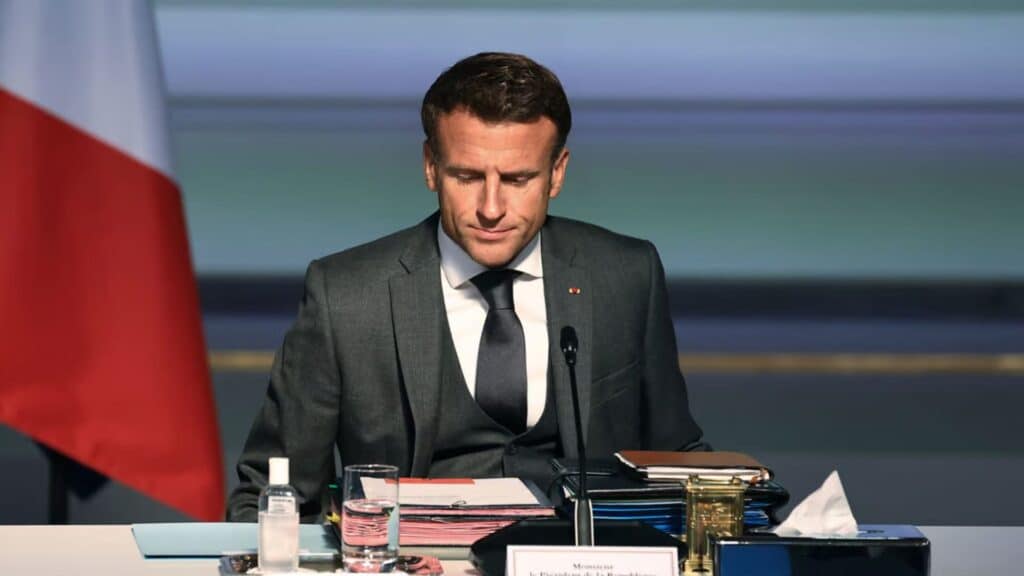Freedom of expression is not living its best moments lately. At the recent meeting of the World Economic Forum in Davos, the president of the European Commission, Ursula von der Leyen openly declared war on ‘disinformation’, a term so vaguely defined that it allows anyone to give it its exact meaning: any information that annoys the authorities. In this he followed the words of the then New Zealand Prime Minister Jacinda Ardern, who addressed the United Nations to warn of the danger of ‘fake news’, and the recently revealed efforts of the Biden Administration to make social networks exercise censorship on ‘sensitive’ issues, such as the Covid pandemic or the war in Ukraine.
And it is in this context that one must read the attempt by the French government of Emmanuel Macron to silence the dissenting voice of a modest but very influential television channel, Cnews, linked to the ‘bête noire’ of globalism in France, journalist Eric Zemmour.
Cnews, owned by Canal Plus France, whose main shareholder is the Catholic and conservative tycoon Vincent Bolloré, is truly a ‘rara avis’ in the French television panorama, unabashedly dissident from all the mantras of the general discourde. Éric Zemmour, founding leader of the Reconquëte party and presidential candidate, became famous on its sets, and it counts on professionals such as the journalist Charlotte D’Ornellas, for many, the muse of the young sovereigntist right.
The accusation against Cnews, the reason why the government of Emmanuel Macron intends to withdraw its license, is that the channel does not meet the conditions of “pluralism” required by law.
In 2022, the Audiovisual and Digital Communication Regulatory Authority (Arcom) warned Cnews’ ‘sister’ channel, C8, about alleged infractions in the treatment of the murder of Lola, the girl killed by an Algerian immigrant, on the popular TV program “Touche pas à mon poste”. In 2017, the CSA, ARCOM’s predecessor, imposed a €3 million fine on the same program by TV host Cyril Hanouna following an allegedly homophobic intervention. And, finally, last year Culture Minister Rima Abdul Malak threatened not to renew CNews’ license to broadcast on France’s digital terrestrial television network after it expires in 2025. In an interview on state radio France Inter, Adbul Malak urged Arcom to ensure that Cnews complies with the conditions of the contract regarding ‘information plurality’, a request that has just been renewed by the Council of State.
Cnews defends itself by assuring that it does its best to guarantee the pluralism of the channel, but that this is not always possible. They claim, for example, that they often invite people who disagree with their editorial line, but on more than a few occasions they refuse to appear on this television channel. As one of their star anchormen, Pascal Praud, has stated in their defense, “If I invite Mélenchon [leader of radical left-wing La France Insoumise], and he doesn’t come, what can I do? If he refuses to debate, am I the enemy of pluralism ?”. Surprisingly, the ruling of the Council of State is the response to an appeal filed by Christophe Deloire, secretary general of Reporters Without Borders, a non-profit organization born, precisely, to defend freedom of information. But it so happens that Deloire is also a delegate of the ‘Etats Généraux de l’Information’, a body created by Macron to maintain control over the media. Not to mention that Reporters Without Borders receives financial support from the French government, George Soros’ Open Society and the radical left sector most hostile to Cnews.
The government’s aim is clearly to curb the growth and influence of Cnews, which extends beyond its stated audience.But not renewing the channel’s license could be seen as an intolerable attack on press freedom and provoke a wave of protests from the French journalistic profession itself, jealous of its mission.
In fact, the harassment suffered by the channel has already provoked protests from numerous media, not always close to the ideology of Cnews.Thus, Denis Olivennes, president of the far-left daily Libération, has spoken out against the harassment of the channel, while the prestigious journalist Franz-Olivier Giesbert insinuates that Emmanuel Macron has influenced the ruling of the Council of State. “We dare not believe that the president is behind this operation, but it is true that when they are in their twilight or face turbulence, rulers often have the reflex to attack the opposition media, as if they and not their policies were the cause of all evils,” he writes in his latest column in Le Point.
